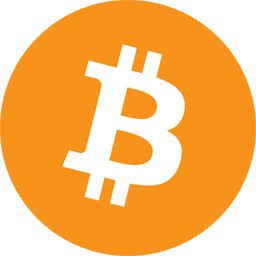

On an analogous note, be cautious of people needing to trade Bitcoins instantly for cash, goods, and amenities. The untraceable nature of the system makes it susceptible to fraud—see below. But this boom in technology couldn’t last. The Bitcoin system is designed to make each new block more complicated in finding than the last one, lowering the quantity of randomized Bitcoins which are generated and allotted. That signifies that as time goes on, each particular person mining for them has to work harder and harder in a figurative sense—it’s the notebook that’s working harder and using more electrical energy, and thus, costing more traditional money. As the range of individual Bitcoins grows, the quantity of Bitcoins rewarded for a without problems accomplished hash is dwindled.
Like Bitcoin, Open UDC is a decentralized protocol for currencies that stops double spending and fraud.
Open your BitCore core / BitCore QT wallet.
Obviously that’s a huge rate of growth and an enormous opportunity for anyone who got on board early—preliminary Bitcoin miners can be millionaires now if they’ve held on to their Bitcoins long enough. But those two points of data don’t tell the complete story: Bitcoin has passed via just a few dips and “crashes,” initially in a risky period in late 2013 and early 2014. Each time the cost recovered, but there’s no insurance that the existing climb will proceed, or that the entire cryptocurrency market won’t cave in. This makes Bitcoin a questionable method for investment. While it’s true that many people have made huge portions of universal wealth by mining and buying and selling in Bitcoin, that wealth is simply as unstable as the market itself, unless it’s transferred to more stable currencies or investments. The ups and downs of the Bitcoin market seem like coming much faster and more commonly than fluctuations in major stock markets and exchanges.
Two Irish students that specialize in neighborhood analysis based that bitcoin wasn't nearly as nameless as many had assumed: They were capable of identify the handles of a few people who had donated bitcoins to Wikileaks. The association announced in June 2011 that it was accepting such donations. Nontechnical beginners to the foreign money, looking forward to it to be easy to use, were dissatisfied find that a rare amount of effort was required to acquire, hold, and spend bitcoins. For a time, one of the imperative easier ways to buy them was to first use Paypal to buy Linden dollars, the electronic forex in Second Life, then trade them within that make agree with universe for bitcoins. As the tone of media coverage shifted from gee whiz to skeptical, interest that had once been exciting became a source of resentment. More disasters accompanied. Poland based Bitomat, the third largest trade, found out that it had—oops—by accident overwritten its entire wallet. Security researchers detected a proliferation of viruses aimed at bitcoin users: Some were designed to steal wallets crammed with modern bitcoins; others commandeered processing power to mine fresh coins. By summer, the oldest wallet provider, MyBitcoin, stopped responding to emails. It had always been fishy—registered in the West Indies and run by someone named Tom Williams, who never posted in the forums. But after a month of unbroken silence, Wagner, the New York City bitcoin evangelist, finally stated what many had already been considering: Whoever was working MyBitcoin had it sort of feels that gone AWOL with everyone's money.